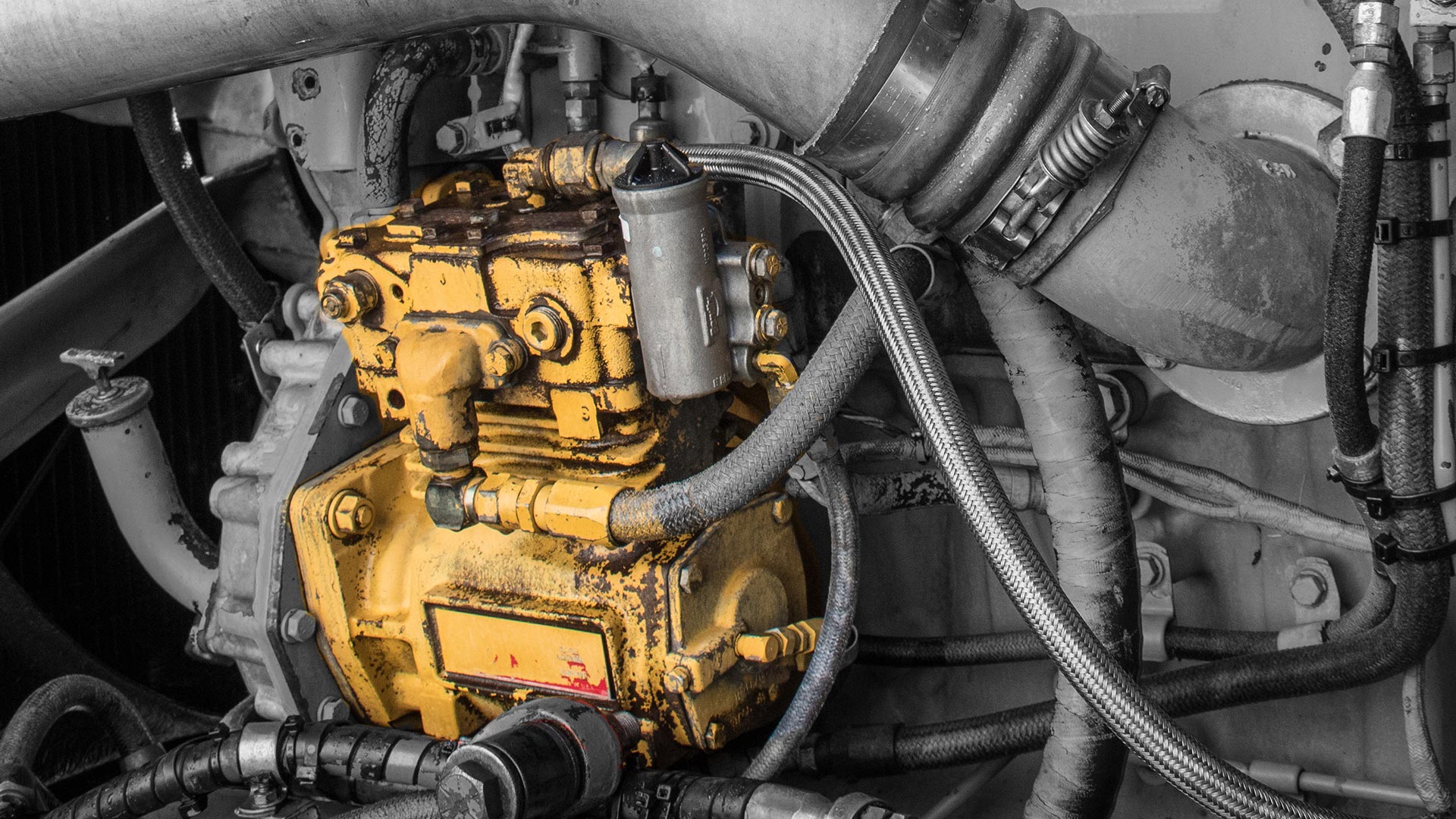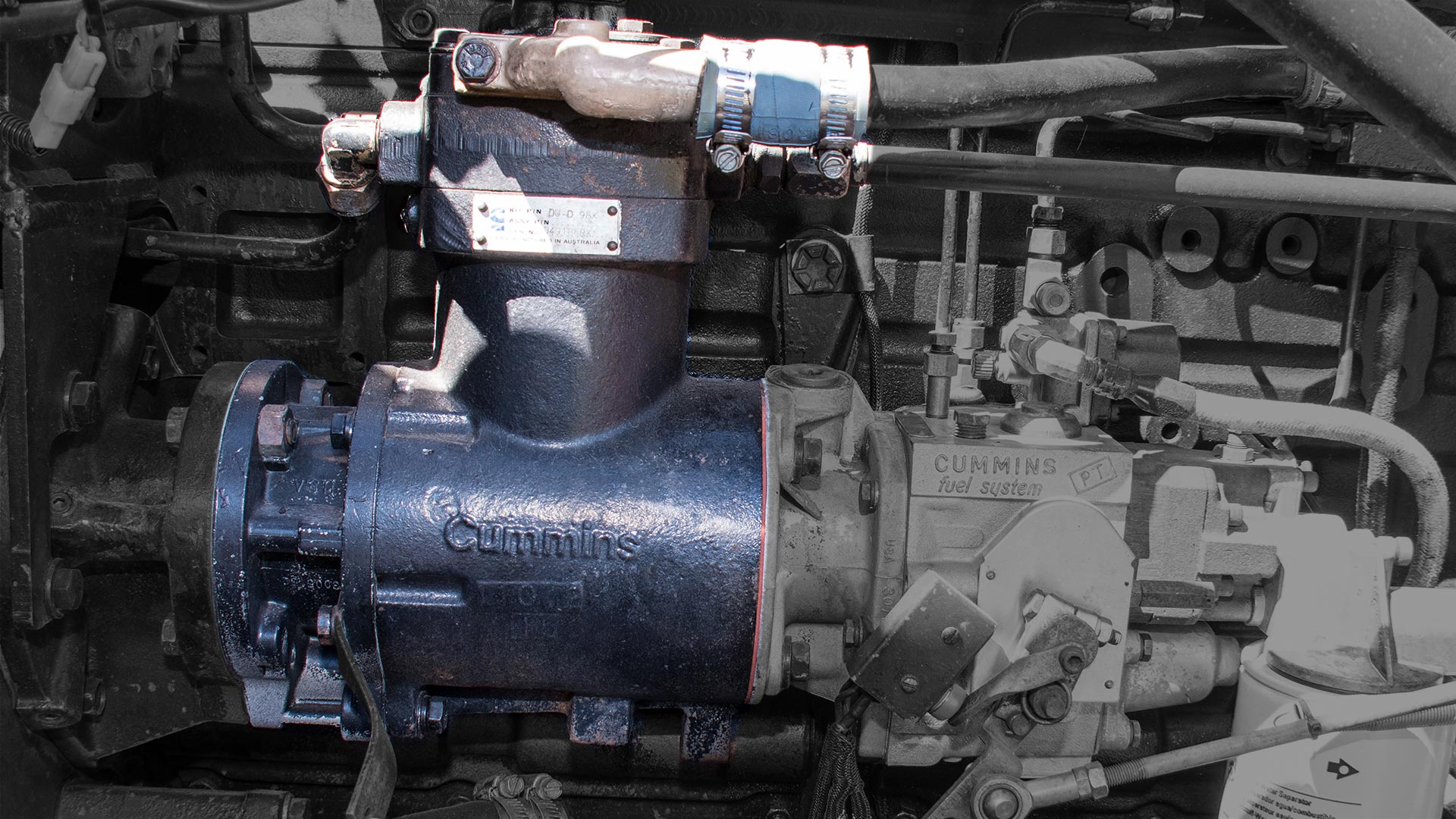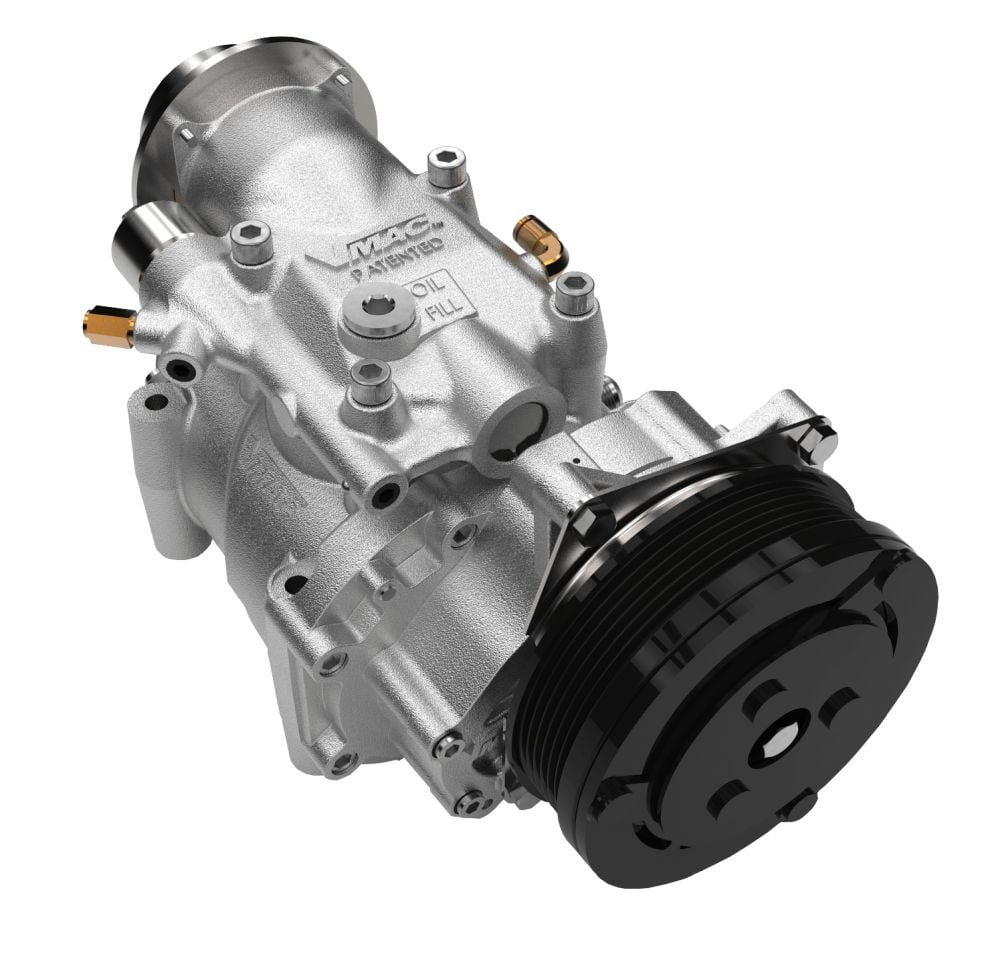An air compressor on a truck provides compressed air for various tools and equipment. It is essential for efficient operation in construction and maintenance tasks.
Air compressors play a crucial role in many industries, especially for mobile applications like trucking. They enable workers to power pneumatic tools, inflate tires, and perform other tasks efficiently. Mounted directly on a truck, these compressors offer convenience, allowing operators to work on-site without needing external power sources.
Their portability ensures that essential tools are always ready for use, enhancing productivity. Whether for construction, landscaping, or emergency services, having a reliable air compressor on a truck can significantly improve operational capabilities. Understanding the features and benefits of these compressors can help businesses choose the right equipment for their needs.
The Role Of Air Compressors In Truck Operations
Air compressors play a vital role in truck operations. They provide power for various tools and systems. Understanding their functions helps in efficient truck management. Proper air compressor usage enhances truck performance.
Essential Functions Powered By Air Compressors
Air compressors serve several essential functions in trucks:
- Pneumatic Tools: Air compressors power tools like impact wrenches and nail guns.
- Brake Systems: They provide air pressure for air brake systems, ensuring safety.
- Suspension Systems: Air compressors adjust air suspension for smoother rides.
- Inflating Tires: They quickly inflate tires, saving time during roadside emergencies.
Types Of Air Compressors Used In Trucks
Different types of air compressors are used in trucks. Each type has unique benefits. Here are the main types:
| Type of Air Compressor | Features | Common Uses |
|---|---|---|
| Reciprocating Compressors | High pressure, cost-effective | Pneumatic tools, brakes |
| Screw Compressors | Continuous operation, efficient | Air suspension, tire inflation |
| Rotary Vane Compressors | Compact, low noise | Small tools, light-duty tasks |
Choosing the right air compressor is crucial. It impacts efficiency and reliability in operations.

Credit: www.roadtrains.com.au
Benefits Of Onboard Air Compressor Systems
Onboard air compressor systems offer many advantages for truck owners. These systems enhance productivity and streamline various tasks. They provide power right where you need it, making work easier and faster.
Enhanced Performance And Efficiency
Onboard air compressors improve the overall performance of your truck. They allow for quick inflation and deflation of tires. This reduces downtime and boosts efficiency.
- Quick Setup: No need to search for external power sources.
- Consistent Power: Reliable air supply for various applications.
- Improved Fuel Efficiency: Less reliance on other tools saves fuel.
With a built-in air compressor, you can tackle jobs more effectively. This system saves time and effort on the road. You can focus on what matters most—getting the job done.
Tools And Applications Powered On-the-go
Onboard air compressors power various tools easily. Here are some common tools you can use:
| Tool | Application |
|---|---|
| Tire Inflators | Inflate tires quickly and safely. |
| Air Impact Wrenches | Tighten or loosen bolts efficiently. |
| Air Ratchets | Speed up mechanical tasks. |
| Paint Sprayers | Achieve a smooth finish on surfaces. |
With these tools, you can handle many tasks while on the road. The onboard air compressor makes operations seamless. Enjoy the freedom to work anywhere with reliable air power.
Selecting The Right Air Compressor For Your Truck
Choosing the right air compressor for your truck is crucial. It impacts performance and efficiency. A suitable compressor enhances your truck’s capabilities. Consider various factors before making a decision.
Key Factors To Consider
- Compressor Type: Choose between reciprocating, rotary screw, or diaphragm. Each type has unique benefits.
- Power Requirements: Know the voltage and wattage. Ensure compatibility with your truck’s electrical system.
- Airflow Rate: Measure in CFM (cubic feet per minute). Higher CFM means more air delivery.
- Tank Size: Larger tanks store more air. This reduces the frequency of refills.
- Portability: Consider weight and size. A lightweight model is easier to transport.
- Noise Level: Check the decibel rating. Quieter models are better for sensitive environments.
Comparison Of Popular Models
| Model | Type | CFM | Tank Size | Noise Level (dB) |
|---|---|---|---|---|
| Viair 400P | Reciprocating | 2.54 | 0.5 Gallon | 70 |
| DEWALT D55146 | Rotary Screw | 5.0 | 4.5 Gallon | 75 |
| California Air Tools 8010 | Diaphragm | 1.60 | 1.0 Gallon | 60 |
Research each model carefully. Consider your specific needs. Make an informed decision based on the factors listed above.
Installation Guide For Truck Air Compressors
Installing an air compressor on your truck enhances its utility. This guide simplifies the setup process. Follow these steps for a smooth installation.
Step-by-step Setup Process
- Gather Your Tools: You will need the following:
- Wrench set
- Drill
- Mounting brackets
- Air hoses
- Safety goggles
- Choose the Right Location: Find a spot on your truck.
- Ensure it’s easily accessible.
- Avoid heat sources.
- Install Mounting Brackets:
Secure the brackets using bolts. Use the drill to create holes.
- Attach the Air Compressor:
Place the air compressor on the brackets. Tighten all bolts firmly.
- Connect Air Hoses:
Attach air hoses to the compressor. Ensure there are no leaks.
- Power Connection:
Connect the compressor to the truck’s power supply. Use appropriate fuses.
- Test the System:
Start the compressor. Check for proper operation.
Safety Measures And Best Practices
| Safety Measure | Description |
|---|---|
| Wear Protective Gear | Use goggles and gloves during installation. |
| Check for Leaks | Inspect hoses and connections for air leaks. |
| Secure All Components | Ensure all bolts and brackets are tight. |
| Follow Manufacturer Instructions | Read the manual for specific guidelines. |
Implement these safety practices during installation. Proper precautions prevent accidents and ensure efficient operation.
Maintenance Tips For Truck Air Compressors
Maintaining your truck’s air compressor is crucial for performance. Regular care ensures efficiency and longevity. Follow these tips to keep your system running smoothly.
Routine Check-up Schedule
Establishing a routine check-up schedule is vital. Regular inspections can catch issues early. Here are some key points to consider:
- Check air filters every month.
- Inspect hoses and connections weekly.
- Change oil every 500 operating hours.
- Examine belts for wear and tear monthly.
Use the table below for a simple maintenance schedule:
| Task | Frequency |
|---|---|
| Air Filter Check | Monthly |
| Hose Inspection | Weekly |
| Oil Change | Every 500 hours |
| Belt Examination | Monthly |
Troubleshooting Common Issues
Identifying problems early prevents bigger issues. Here are common problems and solutions:
- Low Pressure: Check for air leaks in the system.
- Overheating: Ensure proper airflow around the compressor.
- Unusual Noises: Inspect bearings and belts for damage.
- Inconsistent Performance: Look for clogged filters or low oil levels.
Use these steps to troubleshoot effectively. Keeping your air compressor in top shape saves time and money.

Credit: www.roadtrains.com.au
Case Studies: Real-world Efficiency Improvements
Air compressors on trucks have transformed operations across various industries. They boost productivity and enhance workflow. Here, we explore real-world examples of these efficiency gains.
Success Stories From The Field
Many companies have reported significant improvements. Here are some standout examples:
- Construction Company A: They integrated an air compressor to power tools. This cut project time by 30%.
- Delivery Service B: They used air compressors for quick tire inflation. This reduced downtime by 25%.
- Landscaping Company C: They employed air compressors for cleaning equipment. This improved maintenance efficiency by 40%.
Quantifiable Benefits Of Using Air Compressors
Data highlights the advantages of air compressors. Here are some key metrics:
| Company | Efficiency Improvement | Cost Savings |
|---|---|---|
| Construction Company A | 30% Time Reduction | $15,000 Annually |
| Delivery Service B | 25% Downtime Reduction | $10,000 Annually |
| Landscaping Company C | 40% Maintenance Efficiency | $5,000 Annually |
These numbers show the clear benefits of air compressors. They improve speed and cut costs. Businesses notice increased profits and better service delivery.
Cost Analysis: Investing In A Truck Air Compressor
Understanding the cost of a truck air compressor is crucial. Initial costs may seem high. Long-term savings often outweigh these upfront expenses. An air compressor boosts efficiency and productivity for truck operators.
Initial Costs Vs. Long-term Savings
Investing in a truck air compressor involves two main costs:
- Initial Purchase Price: This is the upfront cost of the air compressor.
- Installation and Maintenance: These costs occur after the purchase.
Here’s a quick cost breakdown:
| Cost Type | Estimated Amount |
|---|---|
| Initial Purchase Price | $1,500 – $5,000 |
| Installation | $200 – $500 |
| Annual Maintenance | $100 – $300 |
Consider these long-term savings:
- Fuel Efficiency: A well-maintained compressor saves fuel costs.
- Reduced Downtime: Quick repairs lead to more work hours.
- Increased Productivity: Faster operations mean more deliveries.
Roi For Commercial Truck Operators
Return on investment (ROI) is vital for truck operators. Calculate ROI by comparing costs to savings. Here’s how to estimate it:
- Calculate total costs for purchasing and maintaining the compressor.
- Estimate annual savings from increased efficiency.
- Divide savings by costs to find ROI percentage.
Example:
- Total Costs: $3,000
- Annual Savings: $1,200
- ROI = ($1,200 / $3,000) x 100 = 40%
A 40% ROI indicates a solid investment. Truck operators can benefit significantly from a truck air compressor.

Credit: www.vmacair.com
Future Trends In Truck Air Compressor Technology
Truck air compressors are evolving rapidly. New technologies promise better performance and efficiency. These advancements focus on improving functionality while being eco-friendly. Let’s explore the exciting trends shaping the future.
Innovations On The Horizon
Innovations in truck air compressor technology are impressive. Key developments include:
- Smart Compressors: Use sensors for real-time monitoring.
- Wireless Control Systems: Allow remote operation and diagnostics.
- Modular Designs: Enable easy upgrades and repairs.
These innovations enhance reliability and reduce downtime. They make maintenance easier and save costs. The future looks bright for truck air compressor technology.
Eco-friendly And Energy-efficient Developments
Environmental concerns drive new compressor technologies. Manufacturers focus on eco-friendly solutions. Key developments include:
| Technology | Benefits |
|---|---|
| Electric Compressors | Reduce fuel consumption and emissions. |
| Hybrid Systems | Combine diesel and electric power for efficiency. |
| Recyclable Materials | Lower environmental impact during production. |
These technologies promote sustainability. They help companies meet regulatory standards. The focus is on creating a greener future for the trucking industry.
Frequently Asked Questions
What Are The Benefits Of An Air Compressor On A Truck?
An air compressor on a truck offers multiple advantages. It provides a reliable source of compressed air for various tools and equipment. This enhances efficiency during on-site repairs or tire inflation. Additionally, it saves time and reduces the need for external power sources, making operations smoother and more convenient.
How Do I Choose The Right Air Compressor For My Truck?
Choosing the right air compressor involves considering your specific needs. Look for factors like tank size, PSI ratings, and portability. Assess the tools you plan to use and their air consumption. Finally, ensure compatibility with your truck’s power supply to avoid any operational issues.
Can I Install An Air Compressor Myself?
Yes, you can install an air compressor yourself. However, it requires basic mechanical skills and tools. Follow the manufacturer’s guidelines carefully to ensure proper installation. If you’re unsure, consider consulting a professional for assistance to avoid any potential issues.
How Do I Maintain An Air Compressor On A Truck?
Maintaining an air compressor involves regular checks and servicing. Clean the air filters frequently to ensure optimal performance. Check for leaks and tighten any loose connections. Additionally, change the oil as recommended and drain moisture from the tank to prolong its lifespan.
Conclusion
An air compressor on a truck enhances productivity and efficiency. It provides reliable power for tools and equipment on the go. Investing in a quality air compressor can streamline your work processes. Choose the right model to match your needs.
Maximize your truck’s potential with this valuable addition.

